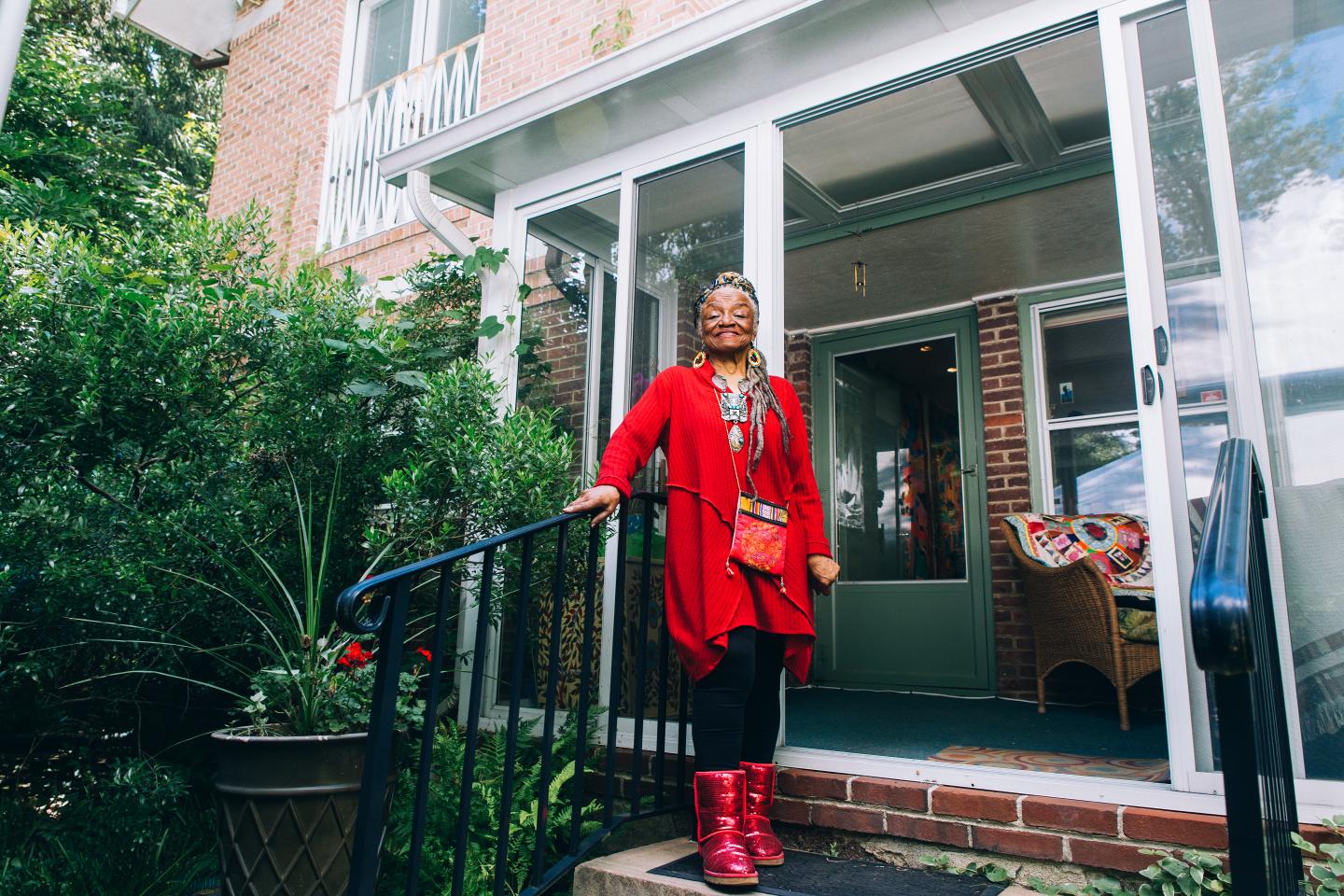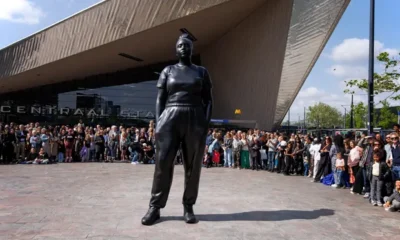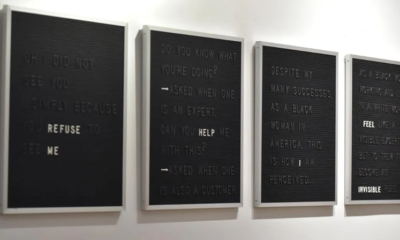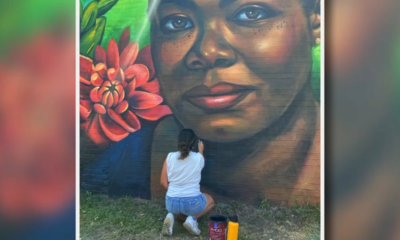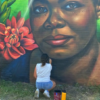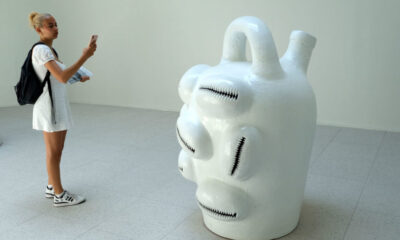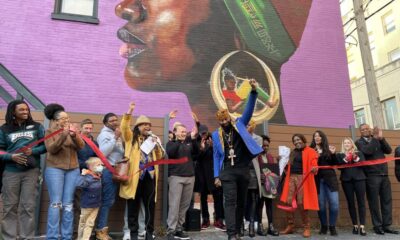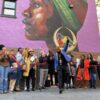Black Women in Arts
BLACK AMERICA DEMANDS POWER FOR THE PEOPLE AND FREEDOM FROM WHITE ART ESTABLISHMENT IN ‘SOUL OF A NATION’ EXHIBIT
In 1970, artist Faith Ringgold made a poster for the Committee to Defend the Black Panthers. A black face looked out from a red background. Some of the facial features were rendered in green, completing the triumvirate of the African liberation color palette. “Free all political prisoners,” it read. “All power to the people.”
Ringgold brought the poster to the committee’s offices on East 18th Street in Manhattan. “They didn’t like it,” she recalls. “And you’ve got our address on there,” they pointed out. Defend the Panthers had just had its offices firebombed; announcing its location might invite another attack.
Ringgold made a second poster, sans address, this one showing an armed black family. Defend the Panthers hated that, too.
The artist wasn’t deterred; she was used to rejection, particularly as an African-American woman working in the largely white, male art world. Several years after Defend the Panthers rejected her, she offered her alma mater, the City College of New York, a painting. “I want my art in a public place,” she remembered thinking.
City College thought otherwise: “They said no. I said, ‘Well, good. I won’t waste my time on them.’”
Her next offer, in 1971, was to the New York Women’s House of Detention, where black revolutionary Angela Davis was being held. The prison agreed to take an enormous painting called For the Women’s House, which showed women in traditionally male occupations: police officers, doctors, basketball players. But in the 1988, long after the jail had moved to Rikers Island, the complex changed over from female inmates to male ones. Ringgold’s painting seemed out of place given the jail’s new population. Accordingly, it was covered in white paint.
“Speak the truth, and you get negative feedback,” she jokes now.
Despite these disappointments, Ringgold persisted—and was rewarded for doing so. She eventually became famous for the children’s book Tar Beach, about growing up in Harlem, as …
Please read original article – BLACK AMERICA DEMANDS POWER FOR THE PEOPLE AND FREEDOM FROM WHITE ART ESTABLISHMENT IN ‘SOUL OF A NATION’ EXHIBIT



